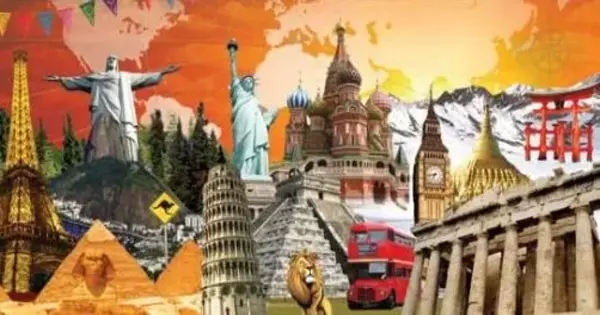Cultural tourism is a type of tourist activity in which the primary objective of the visitor is to learn, discover, experience, and consume physical and intangible cultural attractions/products at a tourist destination. It is a type of tourism that emphasizes experiencing a destination’s culture, history, art, and customs. It is also known as heritage tourism or cultural heritage tourism. It entails visitors visiting locations and participating in activities that allow them to immerse themselves in the cultural features of the location they are visiting.
These attractions/products are associated with a set of distinct material, intellectual, spiritual, and emotional characteristics of a society, which includes arts and architecture, historical and cultural heritage, culinary heritage, literature, music, creative industries, and living cultures with their lifestyles, value systems, beliefs, and traditions. This type of tourism includes interactions with local residents, attending cultural events, and experiencing the way of life in a certain location, in addition to visiting popular attractions.
Here are some key aspects of cultural tourism:
- Cultural Attractions: Travelers engage with cultural and historical attractions such as museums, historical sites, monuments, art galleries, and architectural wonders. These attractions provide insight into the history and artistic achievements of a place.
- Cultural Events: Cultural tourists often participate in or attend events such as festivals, music and dance performances, theater productions, and religious ceremonies. These events showcase the traditions and customs of the local culture.
- Culinary Experiences: Exploring the local cuisine is an important part of cultural tourism. Trying traditional dishes and local specialties can offer a deeper understanding of a region’s culture.
- Heritage Preservation: Cultural tourism can contribute to the preservation and conservation of historical sites and traditions. Revenue generated from tourism often goes toward maintaining and protecting cultural heritage.
- Interaction with Locals: Getting involved with local communities and people can provide a more authentic cultural experience. This could include staying in a local’s home, taking guided tours, or attending courses and classes.
Cultural tourism can take many forms, such as seeing old archaeological sites in another nation or attending a local cultural event in a nearby town. It allows travelers to get a deeper awareness of the world’s varied civilizations, promoting respect and admiration for the characteristics that distinguish each culture. It may also be an economic engine for many areas because it draws tourists who want to experience and preserve the local cultural history.
















